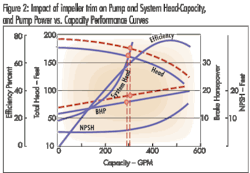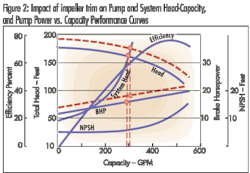Country Profile: Germany Europe's Flagship Water Model?
It is no coincidence that Germany possesses one of the lowest rates of non-revenue water across Europe; target-orientated investments have seen more than 110 billion euros invested into the industry since 1990. Stefan Girod looks at whether other developing European countries can adopt the same approach.
Germany owns large resources of water: the amount regenerating each year adds up to 188 billion cubic metres. Public water supply uses only 3% of the resources available and about 17% are used by various further consumers. The consumption per capita amounts to 122 litres a day per person and has decreased by circa 17% during the last 20 years.
The state of surface water is good and drinking water quality is unique in Europe – people can enjoy tap water anytime, anywhere without hesitation. However, this has not always been the case. Rapid industrialisation after World War II caused considerable deterioration of the water quality. During the years of the economic miracle water groundwater pollution control formed no part of the agenda. It was during the mid-eighties when measures and activities were developed to improve water quality quickly and sustainably.
It was this drive that led German water companies to lead research, development and implementation of future-oriented solutions. Detailed regulations concerning all parts of the branch like water supply, wastewater disposal and water management, as well as careful certifications throughout the supply and disposal chain form the basis of the German success story. Fees, quality, environmental regulations as well as rights of water withdrawal and discharge are subject to strict control of the authorities.
Targeted Investment
High standards of water supply and wastewater treatment can be attributed to target-orientated investments - overall investment of more than 110 billion euros since 1990. As a result, the mainly municipally organised German water sector is one of the biggest clients of the private industry, especially small and medium enterprises.
Consequently, due to high technical standards interruptions in supply are nearly unkown in Germany and the rate of non-revenue water is the lowest thoughout Europe. Capability characteristics of the German water branch are long-term guarantee of supply and disposal, extraordinary quality of drinking water, high standards of wastewater disposal and sustainable handling of water resources. Permanent development of suitable measures under consideration of economic and demographic developments as well as the climate change guarantee constantly high standards.
Future European Challenges
Drinking water quality and supply is unfortunately not as sustainable and extensive across Europe as in Germany. Not only the uneven distribution of resources but also poor water management are the reasons for regional water shortages. Deficits in water supply, wastewater disposal and water quality are as heterogenous as the climatic, local and demographic conditions.
High technical standards mean interruptions in water supply are nearly unknown in German cities such as Berlin, above, and the rate of non-revenue water is the lowest throughout Europe
The treatment of industrial wastewater often is insufficient, supply networks and plants are in many cases outdated and the infrastructure is inadequate for extensive supply with satisfactory quality. Poor supply of the population, inferior quality and high rates of water losses in the supply channels are the consequences.
Nutrient discharge into European waters still presents another big problem because of the resulting water and groundwater pollution. The largest source of pollutants is extensive agriculture, which discharges significant amounts of nutrients due to overfertilisation. At the same time agriculture is the biggest water user. Water consumption for farming vast areas is enormous; the watering systems are often inefficient and implicate high water losses. Regulations, relating to treatment of industrial wastewater and pollution if existent, are insufficient or their conformity is not controlled adequately.
Development and implementation of modern technologies, processes and supply systems therefore are essential steps towards an effective and sustainable water resource management. Achieving important progress requires manifold measures and concepts meeting the demands.
The establishment of modern quality standards considering water and drinking water quality, wastewater treatment and consequently control and protection of standards achieved has to be supported by modernising supply networks and wastewater treatment plants. Qualification measures and certification of companies are important aspects.
On the other hand those measures have to be put into practice by qualified personnel and adequate technical equipment. By continuous education and training it will be possible to establish a modern water supply system. Corresponding financing instruments complete the list of requirements.
Legislative drivers
The EU Water Framework Directive represents another ambitious instrument to improve water quality with far reaching consequences for future management of water and aquatic ecosystems throughout Europe.
According to the EU Water Framework Directive all European surface water and groundwater are supposed to be in "good" ecologic condition in 2015. The directive names the demands and regulations for the various sectors. Many new EU members are facing big challenges here. International networking is an appropriate approach to achieve the goals and optimize processes.
Experiences, know-how and technologies from all areas of the water sector can be exchanged and bundled in a target-oriented way. It is essential to find competent contact persons who support and promote the implementation of the water supply systems in question.
Component manufacturers as well as plant constructors or operating companies will benefit from the know-how of international partners to strengthen individual competence and realise sustainable concepts.
Exporting German expertise
Through the partnership German companies are involved in 17 focus countries and regions, including Turkey, Bulgaria, Romania, Russia, Ukraine and Croatia. The partnership initiates and supports cooperations and projects.
This has included the Maritza river basin in Bulgaria and the rehabilitation of a formerly insufficient wastewater treatment plant near Zagreb in Croatia. Furthermore, contacts have been put forward to help with the development of the Turkish water sector.
Going forward, Germany's aim is to keep the high standards and expertise of the water sector but help distribute sustainable water resource management and continuous improvement of water supply and wastewater disposal all over the world. Water remains the most precious natural resource worldwide. WWi
Author's note:Stefan Girod is the director of the German Water Partnership, which is supported by five federal ministries and has more than 300 members in the water sector.
More Water & WasteWater International Current Issue Articles
More Water & WasteWater International Archives Issue Articles


